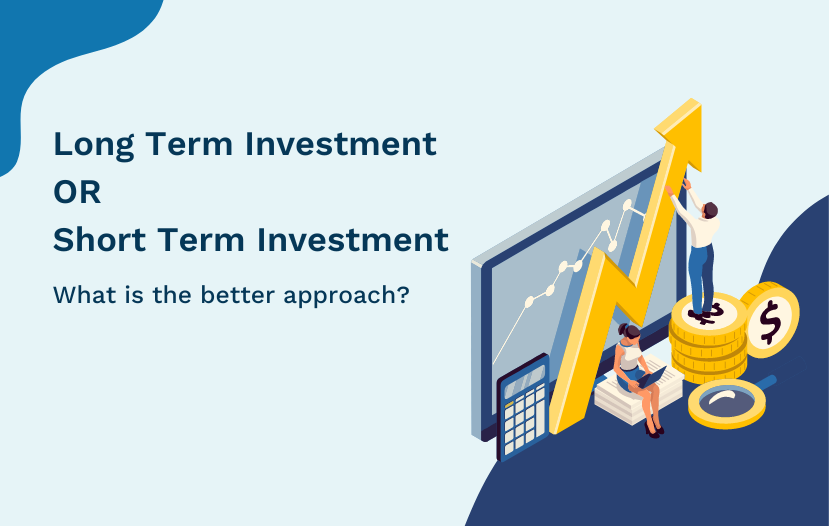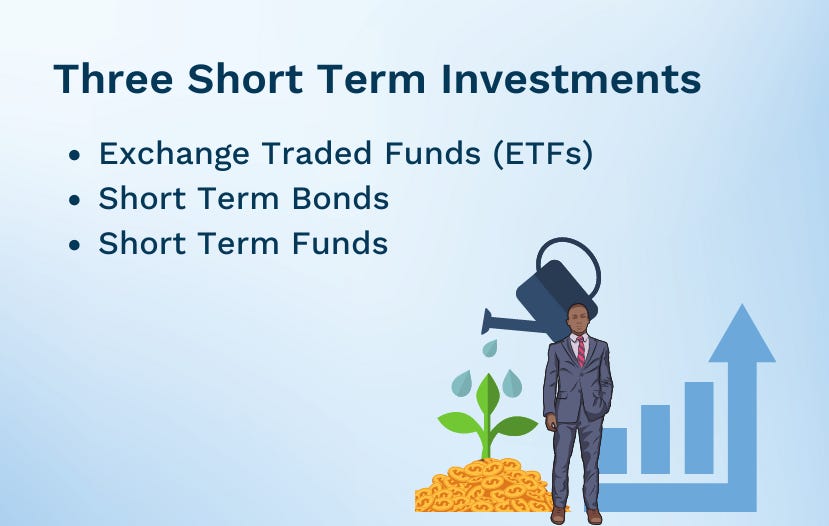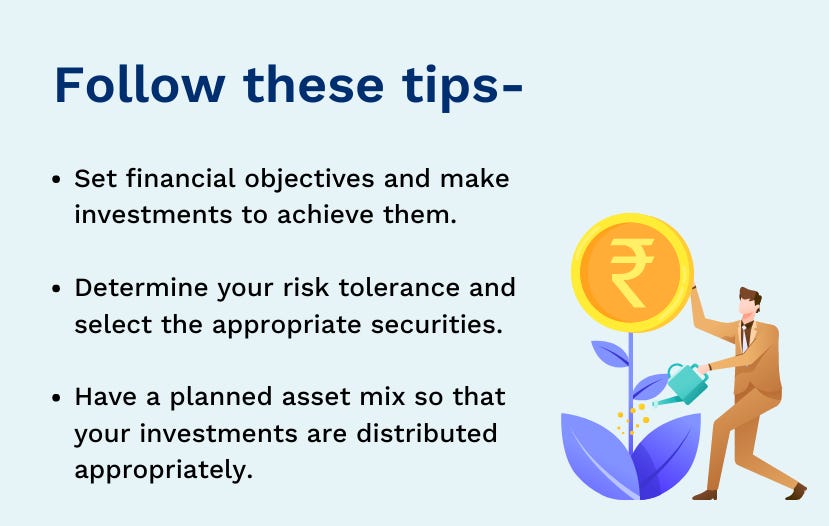Does the tenure of investment matter? Is there a right time to hold or sell investments? Do you find yourself asking such questions? We are here with yet another article to answer most of your questions.
The goal of investing is to build wealth and put money away for emergencies. If all of your wealth doesn't support you when you need it, what good is it?
Investing is a prolonged process that requires discipline and patience. The investors can either invest in short-term or long-term, depending on their financial needs, investment objectives, risk appetite and time horizon.
But let us first understand what are short-term and long-term investments and what are the different instruments in which one can invest.

Short-term Investments: What Are They?
Short-term investments are the ones that are held for a period of 1-3 years.- They are highly liquid and involve less risk as compared to long-term investments. Here you would want to park your money in safer instruments and seek relatably stable assets with certain returns.
Three Short-term Investments to Think About
As long as investors focus on their objectives and make an effort to meet them, short-term investments may be a wise investment choice. A few examples of Short-term investments are:

Exchange-traded funds (ETFs)
ETFs are a pool of securities just like mutual funds except for the fact that ETFs are traded on stock exchange. They are creative and well-liked products among the Indian investors, including short-term ETFs. For investors who find it difficult to assess and choose equities for their portfolio, ETFs are a great investment option.
Short-term Bonds
They are safe investments regardless of market conditions because they have a smaller interest rate risk than intermediate or long-term bonds.
Short-term Mutual Funds
Short-duration mutual funds invest in debt securities with high yields and low risk for one to three years. Short-term mutual funds- They can produce significantly higher returns than bank deposits while also supplying crucial liquidity.
Long-term Investments: What Are They?
Financial instruments held for one year or longer are considered long-term investments. These are investments that, after some time - typically five years or more - might yield more notable returns. Long-term investments carry more risks and yield higher returns, thereby allowing you to invest in aggressive market instruments.
What to Take Into Account When Making Long-Term Investment Decisions

Short-term and long-term investments difference
Let's examine how short-term and long-term investments differ based on the following aspects for a better understanding:
Meaning
Short and long are complete antipodes of one another, making them self-defining. Any investment held for one year or less qualifies as a short-term investment since the term "short-term" refers to a short time frame. The average holding period for long-term investments is five years. Long term investments give your money substantial time to grow and recover from major market dips. Having clear financial goals will help you choose the type of investment.
Investment Duration
The one- to three-year short-term stock investment timeframe is possible. However, when the investment period is less than a year, short-term investment is taken into account for tax purposes.
The best time horizon for long-term investing is greater than five years. Depending on the investor's desire to hold them, an investment with a 3-to-5-year tenure may still qualify as long-term.
Returns
Riskier investments have the potential to produce greater returns than lower-risk ones, which frequently result in smaller profits. Because it is challenging to predict long-term investments' potential and price volatility, they carry a higher risk compared to short-term investments. However, because stocks are kept for several years or decades, they have comparatively little impact on the market's ongoing shifts.
Suitability
The financial status and investment goals of the investor will determine whether to invest for the long or short term. Before choosing one or both, you should weigh the advantages and disadvantages of having a mix of short- and long-term investments in your portfolio.
When should you choose short-term investments over long-term ones?
You urgently require money to cover a pre-planned expense, like a trip that's coming up.
Short-term investments are less risky in nature and provide smaller returns.
When should you choose long-term investments over short-term ones?
You have plans to retire in five years.
You won't have to pay any significant expenses during the year.
You want to build and safeguard your future.
Final words
There is no clear winner among the two as both the types have their pros and cons. In financial markets, there is no quick alternative for wealth creation. One must weigh the advantages and disadvantages of the two and decide which is better for them depending on their financial goals. The key is to find the right balance for your investments.